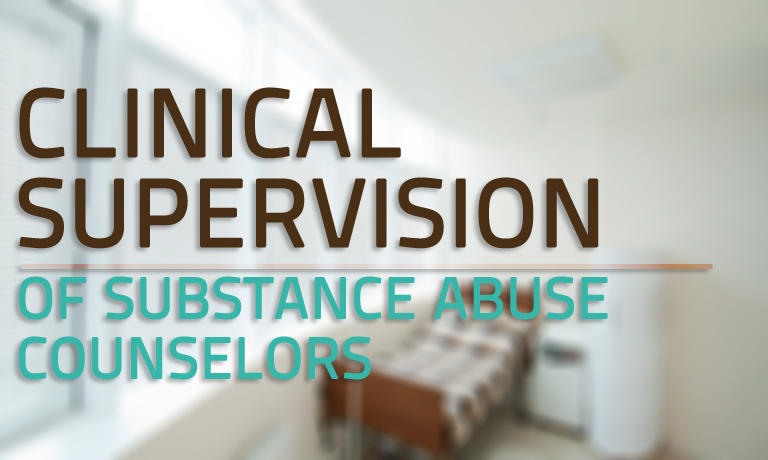
Clinical supervision is emerging as the crucible in which counselors acquire knowledge and skills for the substance abuse treatment profession, providing a bridge between the classroom and the clinic. Supervision is necessary in the substance abuse treatment field to improve client care, develop the professionalism of clinical personnel, and impart and maintain ethical standards in the field. In recent years, especially in the substance abuse field, clinical supervision has become the cornerstone of quality improvement and assurance.
Your role and skill set as a clinical supervisor are distinct from those of counselor and administrator. Quality clinical supervision is founded on a positive supervisor–supervisee relationship that promotes client welfare and the professional development of the supervisee. You are a teacher, coach, consultant, mentor, evaluator, and administrator; you provide support, encouragement, and education to staff while addressing an array of psychological, interpersonal, physical, and spiritual issues of clients. Ultimately, effective clinical supervision ensures that clients are
competently served. Supervision ensures that counselors continue to increase their skills, which in turn increases treatment effectiveness, client retention, and staff satisfaction. The clinical supervisor also serves as liaison between administrative and clinical staff.
This TIP focuses primarily on the teaching, coaching,consulting, and mentoring functions of clinical supervisors. Supervision, like substance abuse counseling, is a profession in its own right, with its own theories, practices, and standards. The profession requires knowledgeable, competent, and skillful individuals who are appropriately credentialed both as counselors and supervisors.
Rationale
For hundreds of years, many professions have relied on more senior colleagues to guide less experienced professionals in their crafts. This is a new development in the substance abuse field, as clinical supervision was only recently acknowledged as a discrete process with its own concepts and approaches. As a supervisor to the client, counselor, and organization, the significance of your position is apparent in the following statements:
• Organizations have an obligation to ensure quality care and quality improvement of all personnel. The first aim of clinical supervision is to ensure quality services and to protect the welfare of clients.
• Supervision is the right of all employees and has a direct impact on workforce development and staff and client retention.
• You oversee the clinical functions of staff and have a legal and ethical responsibility to ensure quality care to clients, the professional development of counselors, and maintenance of program policies and procedures.
• Clinical supervision is how counselors in the field learn. In concert with classroom education, clinical skills are acquired through practice, observation, feedback, and implementation of the recommendations derived from clinical supervision.
Functions of a Clinical Supervisor
You, the clinical supervisor, wear several important “hats.” You facilitate the integration of counselor selfawareness, theoretical grounding, and development of clinical knowledge and skills; and you improve functional
skills and professional practices. These roles often overlap and are fluid within the context of the supervisory relationship. Hence, the supervisor is in a unique position as an advocate for the agency, the counselor, and the client. You are the primary link between administration and front line staff, interpreting and monitoring compliance with agency goals, policies, and procedures and communicating staff and client needs to administrators. Central to the supervisor’s function is the alliance between the supervisor and supervisee (Rigazio-DiGilio, 1997).
As shown in Figure 1, your roles as a clinical supervisor in the context of the supervisory relationship include:
• Teacher: Assist in the development of counseling knowledge and skills by identifying learning needs, determining counselor strengths, promoting self-awareness, and transmitting knowledge for practical use and professional growth. Supervisors are teachers, trainers, and professional role models.
• Consultant: Bernard and Goodyear (2004) incorporate the supervisory consulting role of case consultation and review, monitoring performance, counseling the counselor regarding job performance, and assessing counselors. In this role, supervisors also provide alternative case conceptualizations, oversight of counselor work to achieve mutually agreed upon goals, and professional gatekeeping for the organization and discipline (e.g., recognizing and addressing counselor impairment).
• Coach: In this supportive role, supervisors provide morale building, assess strengths and needs, suggest varying clinical approaches, model, cheerlead, and prevent burnout. For entry-level counselors, the supportive function is critical.
• Mentor/Role Model: The experienced supervisor mentors and teaches the supervisee through role modeling, facilitates the counselor’s overall professional development and sense of professional identity, and trains the next generation of supervisors.
